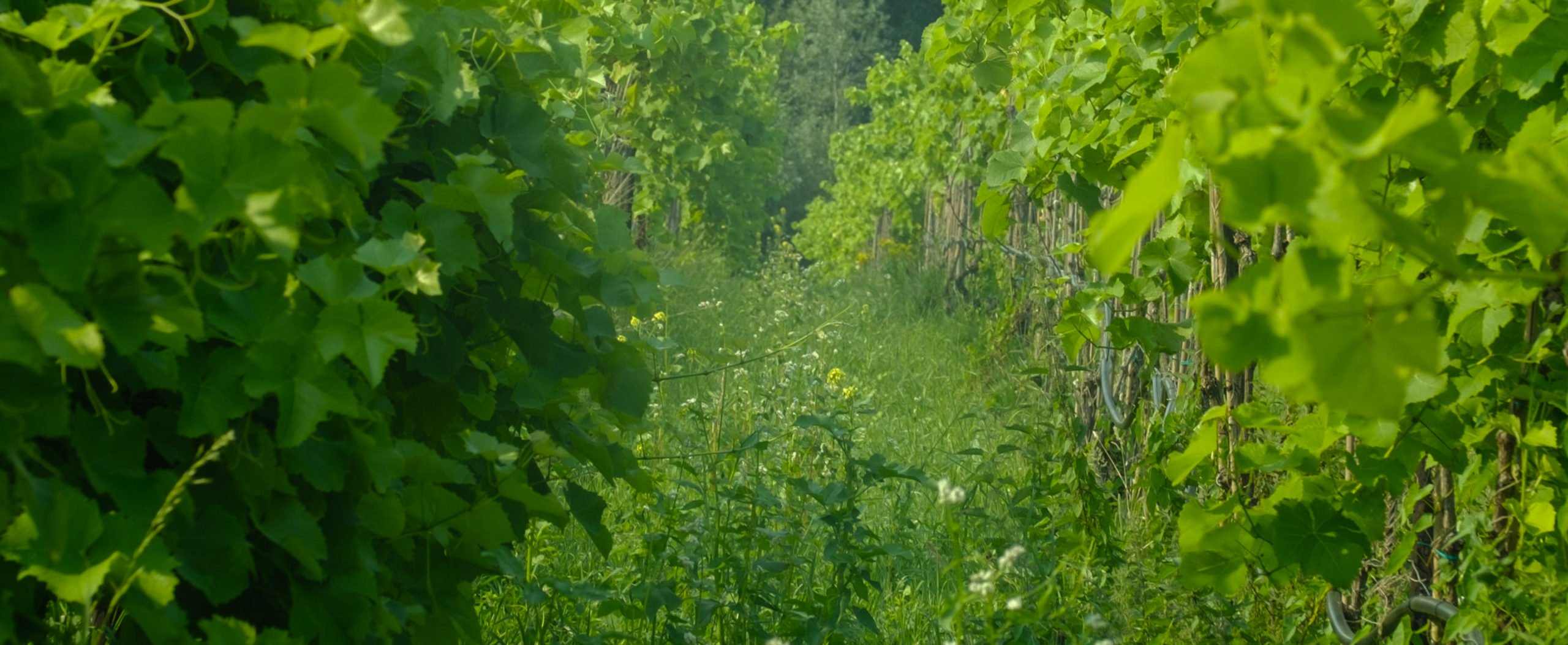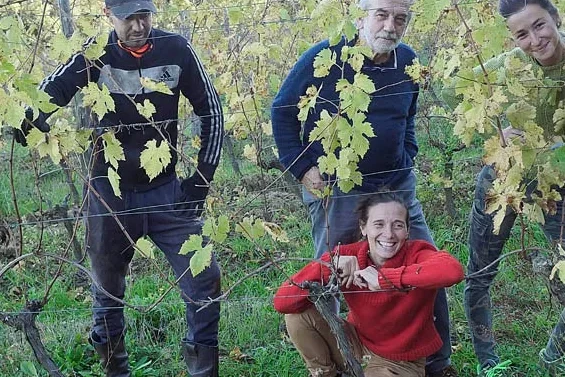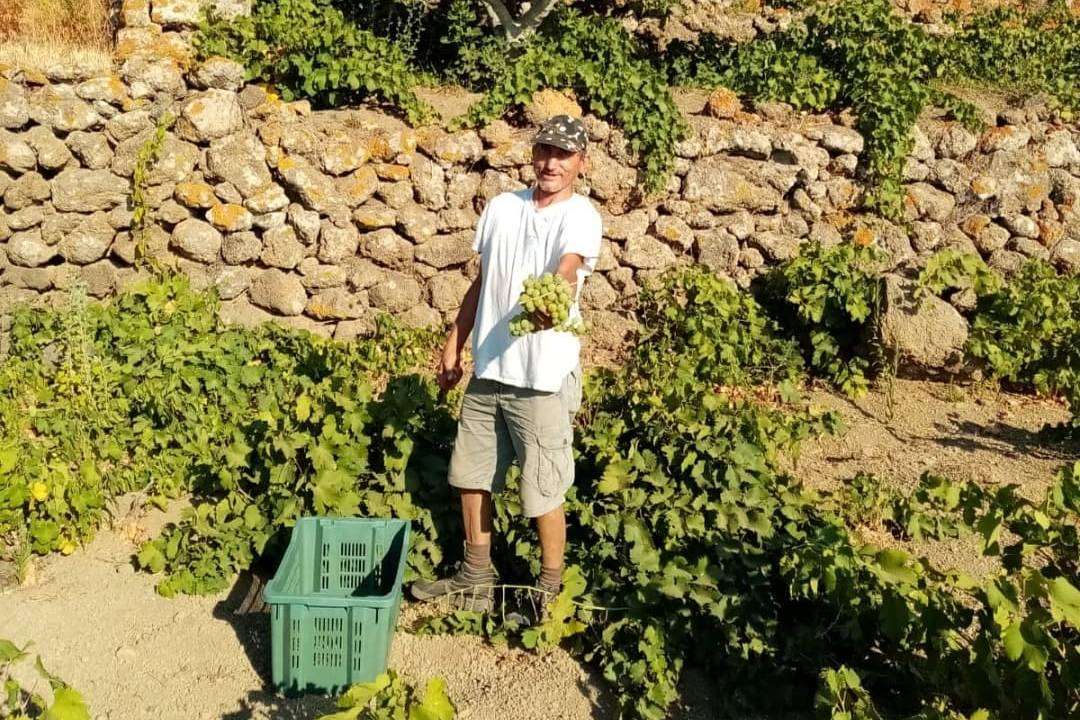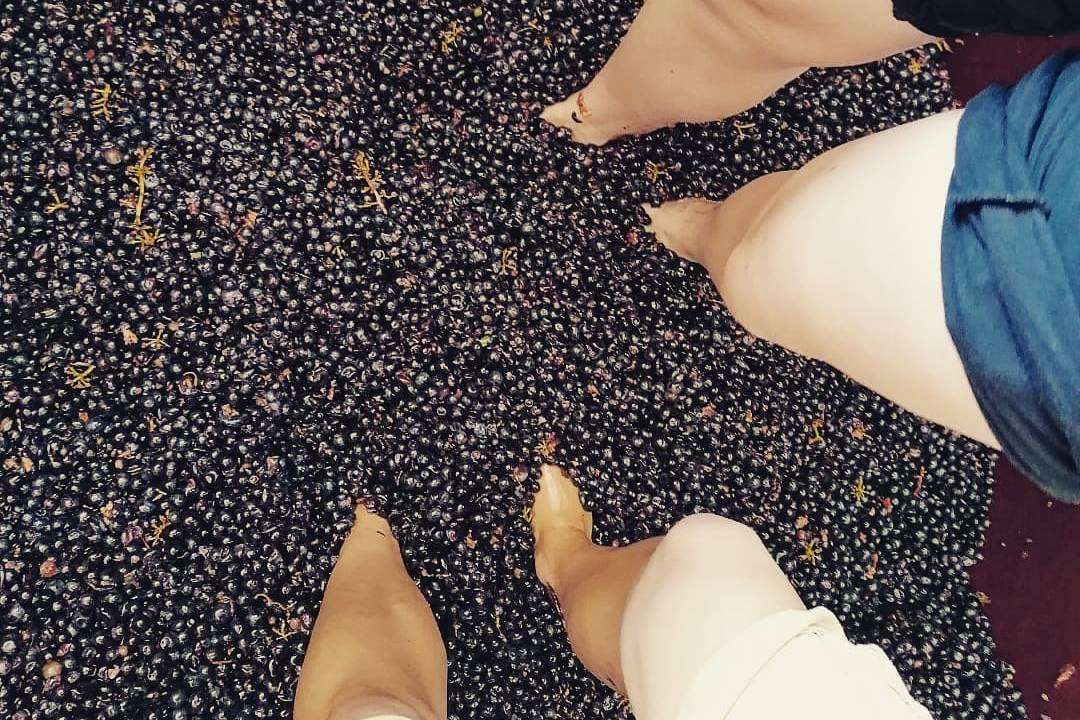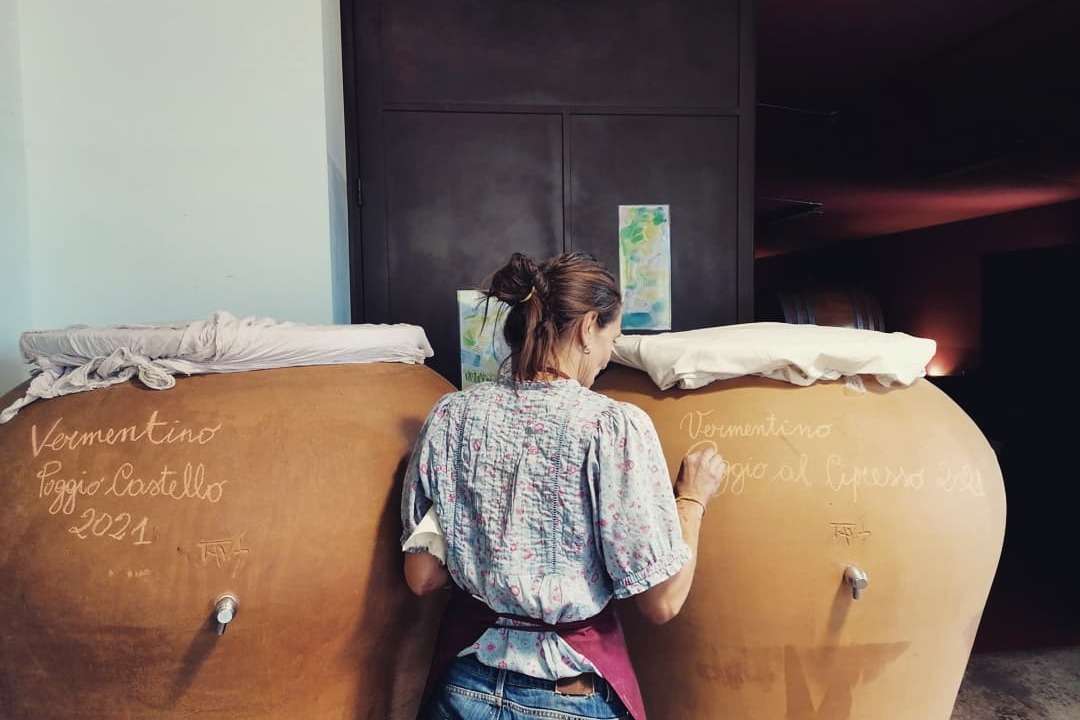I Mandorli
– Upper Maremma, Italy
I Mandorli, a hidden gem tucked away in the Tuscan village of Belvedere Suvereto, was founded in 2002 by Massimo Pasquetti.
Their journey began with a different goal entirely: to produce olive oil for personal use. The search for suitable land led Massimo Pasquetti to an abandoned olive grove in the rugged hills of Suvereto. Overgrown with maquis and deemed too costly by locals to restore, the land still had many advantages. The soil had never been exposed to fertilizers, pesticides, or herbicides; it was mineral-rich, which Pasquetti soon discovered was ideal for viticulture, and its proximity to the sea provided an optimal microclimate for both vines and olives.
In 2003, he planted Sangiovese, followed by Cabernet Sauvignon, Cabernet Franc, Aleatico, and Vermentino. From the start, he committed to natural agricultural methods, focusing on biodiversity, respecting lunar cycles, and working patiently with the seasons, allowing nature to dictate the pace of progress. By adhering to the practice of green manure (sovescio), the vines are not forced into productivity.
With the arrival of his daughter Maddalena, the natural approach has been taken even further. They now work completely biodynamically and experiment with homeodynamics to eliminate the use of copper and sulfur in the vineyard. In the cellar, winemaking is being refined, with all parcels vinified separately and experimentation with different aging vessels such as amphora and concrete. A limited amount of sulfites is added only before bottling, and only when necessary.
The wines share elegance and purity while staying true to their varietal character. Cabernet Sauvignon is more robust than the seductive Sangiovese. Aleato—‘Vino Estivo’ (a blend of the little-known Aleatico and Sangiovese)—is a wine made for summer, best served lightly chilled, though equally enjoyable in other seasons.
The latest addition is Vermentino, which underwent limited skin contact and was aged in amphora. The wine is bottled with part of the lees, resulting in a profile that can range from wild and complex to clear and fruit-forward.
Cultivation: 7 ha
Production: 25.000 bottles / year
Varieties: Aleatico, Cabernet Franc, Cabernet Sauvignon, Sangiovese, Vermentino
Approach: Biodynamic, natural fermentations, minimal intervention
Certifications: none on the label
Sulfites added: minimal prior to bottling


